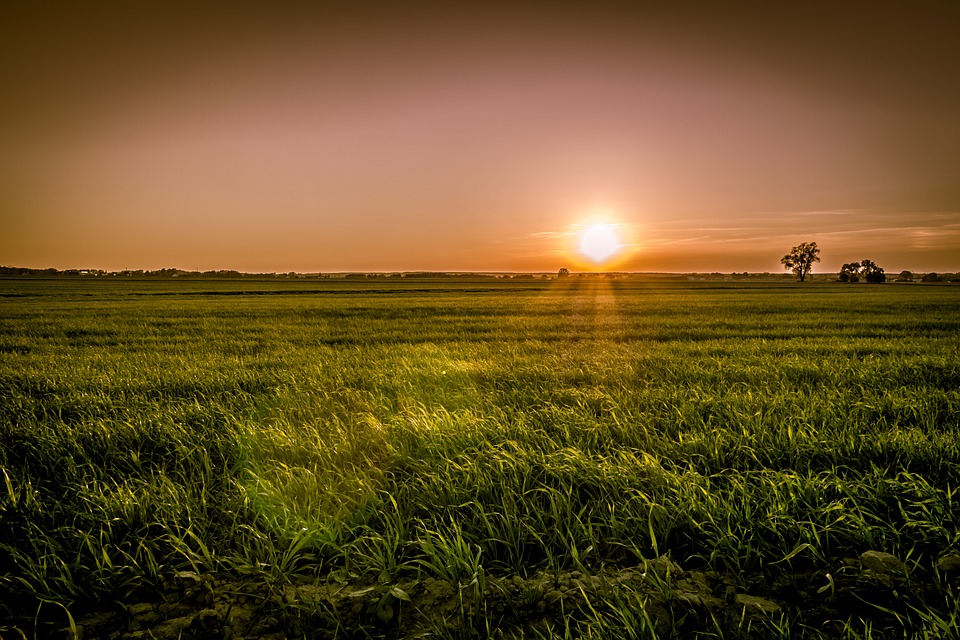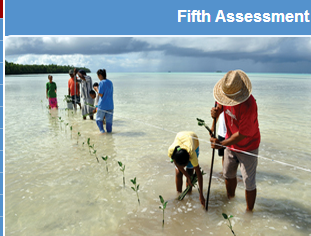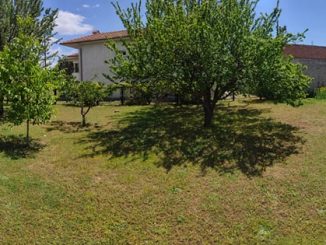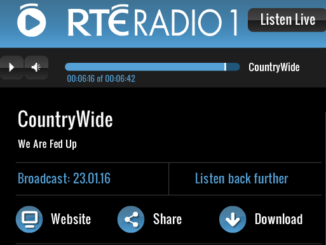
As a major agricultural nation in the east, Poland has a significant interest in how CAP will unfold in the current reform process. While not all regions or sectors are the same in this large country, there are some common considerations. We have commissioned journalist Hans Wetzels to get to grips with CAP and Poland, in particular how Polish farmers and Polish policy makers will adapt to likely changes, including a lower overall CAP budget, greater environmental focus and the new delivery model. How Poland relates to other EU countries, in particular France and Germany, will also play a part in this series. Below we introduce part two. Part one is here
By Hans Wetzels in Poland
It is halfway through December 2018 when minister Jan Krzysztof Ardanowski of the Polish party Law & Order (PiS) reads out a statement in a brightly coloured meeting hall in the heart of Brussels’ European Quarter. Despite severe objections and earlier attempts at radical CAP-reform the Polish government has reluctantly decided to accept the proposals for a new Common Agricultural Policy (CAP) the European Commission presented earlier that year.
The European ministers of Agriculture have met today for their monthly AGRIFISH meeting in the Europa Building at Rue de la Loi in Brussels. Ministers of several countries at the same time welcome the proposals and express concern. Brexit has severely slashed the EU-budget and farmers across the continent are bound to feel pain because of severe cuts. “Poland stresses that, as a rule, the country supports pursuing environmental goals through CAP, because agriculture is a sector whose environmental impact potential is significant while at the same time being strongly dependent on the environment,” Ardanowski tells his fellow ministers. “But for us the most sensitive element of the Commission’s proposals is financial. Support in the new CAP is now strongly focussed on environmental and climate goals, which cannot be reconciled with a simultaneous reduction of the budget and further liberalisation of the trade policy in the area of agriculture.”
Eastern bloc
Over the past years the Polish government has slowly established itself as leader of Eastern European countries dissatisfied with surfacing disparities between old and new EU-member states. In March 2018 Warsaw teamed up with the governments of the three Baltic states to give a joint declaration on the (then still brand-new) CAP-proposals. The four countries underlined taht they still cannot accept the fact that their farmers will continue to receive less European money per hectare than their German or Dutch counterparts. “Poland would like to equalize those payments,” Zofia Krzyzanowska explains in her office at the ministry of Agriculture in Warsaw. “But in the European Council there is a strong opposition. After Brexit the EU simply does not have enough money to raise payments to farmers in Poland or Slovakia. But governments in Italy or the Netherlands also don’t want to reduce support for their farmers. As an Eastern bloc we foresee difficulties in gathering support to equalize farm subsidies anytime soon.”
Krzyzanowska has been working on European policy for seventeen years. She served as deputy minister, was member of the team negotiating the terms for Polish EU-accession in 2004 and has been Counsellor General for European affairs at the ministry ever since. We sit down at a big wooden desk deep within the thick walls of the ministry in the centre of Polish capital. Despite reservations on unequal payments, Poland does consider voting in favour of the proposals currently on the table, the Counsellor General stresses: “We would like to support this proposal, but do want change on some issues. What is difficult for us is the cuts. I realize Europe has to deal with Brexit, a migration crisis and climate change. But funds like this reflect the priorities for European society and cuts this big are disproportional.”
Voting but not talking
Despite the financial issues of the EU, CAP does still represent a whopping 38 percent of the total EU-budget. The main novelties in the proposals are the (somewhat surprising) idea of the Commission to let national governments draw up their own strategic plans on agricultural investments, the maximization of subsidies at farm level, an even bigger focus on the environment, but less money for rural development.
On May 30, 2018 the European Parliament also had its say on the agricultural policy proposed by the European Commission. After a vote the parliament drew up a resolution supporting the new CAP. The Parliament ‘welcomes the intention to simplify and modernise the CAP for the economic benefit of farmers’, but emphasises that overriding priorities must remain with ‘the integrity of the single market and a truly common policy’ to support ‘sustainable agriculture, and ensures safe, high-quality and varied food, employment and development in rural areas.’
Of the 680 representatives present during the vote in Strasbourg, 468 were in favour of the resolution. But almost all of the parliamentarians of the ruling Polish PiS-party abstained from voting. Beata Gosiewska is the only Polish representative even voting against. During a phone conversation her assistant tells me Gosiewska is too busy to comment on the vote. None of the other PiS-members bother to react to inquiries at all.
Czeslaw Siekierski is a member of the traditional Polish farmers’ party Polskie Stronnictwo Ludowe (PSL) and currently chairs the parliamentary Committee on Agriculture and Rural Development in Brussels. “I do not represent the same political opinion as the ones currently in power in Poland,” he comments carefully. “The support of Polish citizens for the EU is very high. The government often attempts to evoke anti-EU sentiments under the guise of national identity. This does not serve the well-being of a united Europe.”
Mercosur
Siekierski grew up in the small town of Stopnica in central Poland. He has been a member of the European Parliament since Polish EU-accession in 2004. “My party in general highly praises the functioning of CAP, which has brought measurable benefits to Polish farmers,” he explains. “We have achieved food security and a significant surplus of food exports. But we are still at the beginning of the road as far as the modernization of Polish agriculture goes.”
Most members of the Committee on Agriculture and Rural Development usually agree on the direction European agriculture should take, Siekierski stresses. “About agriculture we tend to think similarly in the European Parliament, regardless of our countries of origin. Problems start to arise when it comes to trade policies or agreements with for example the South-American trading bloc Mercosur. Such a trade deal would lead to excessive inflow of competitive goods from countries like Brazil or Argentina, where EU-standards are not respected and production takes place on a very large scale. In Poland a lot of current problems in agriculture are the result of the Russian embargo and the opening of the EU to Ukraine. Polish farmers can’t sell fruits in Russia anymore, while at the same time cheap grains, soft fruits and poultry from Ukraine come streaming in.”
Visegrad Group
Poland lies more eastwards and is more vulnerable to open borders with Ukraine than Belgium or Spain. But Polish farmers also generally feel more threatened by economic globalisation than their western counterparts where agricultural sectors are better developed. This divide not only influences agriculture, but also accelerates already existing rifts among EU-member states. For nationalist politicians like Hungary’s Viktor Orbán, the Visegrad Group (a club compounded of Poland, Hungary, Slovakia and the Czech Republic), is growing evermore important, whilst the Poles and the Hungarians have vowed to support each other in Council decisions needing unanimity affecting the other negatively.
Even bigger CAP-cuts might as well aggravate dissatisfaction in the rural communities where EU-sceptical populist parties find parts of their voter-base, Zofia Krzyzanowska argues: “Polish farmers receive 200 euro’s per hectare. Big farms around Szczecin in the north of Poland compete with German farms, just across the border, that receive double that amount. How do we still explain this situation to them?”
Giant exhibition
Friedrich Ostendorff is member of the German Greens in the Bundestag and spokesperson for CAP-related issues for his party. We meet during the annual agricultural convention called Grüne Woche. For a whole week an enormous convention centre in the outskirts of Berlin is transformed into one giant exhibition hall. Inside, the smell of Ukrainian dumplings competes for attention with beer stalls, all kinds of advocate groups, companies selling farm equipment and even whirlpools.
Despite understanding the emotion, the Polish push for subsidy equalization might change nothing for small farmers, Ostendorff argues. “I know Poland quite well. If you look at the important European axis Paris-Berlin-Warsaw, I think we should listen more to the needs of Polish farmers themselves. At this point we have a system wherein the biggest farms get the most money. The simple fact that the amounts of money farmers rake in are bigger in Germany than in Poland does not change the madness of that entire system. Despite nationalist Polish rhetoric about equalizing payments, it’s still not in the interests of the small Polish farmers that are completely misrepresented in Europe. Polish farmers could gain more from ecological transition or protecting biodiversity than equalizing payments. That is something the Law & Order Party does not seem to comprehend.”
ECA report & 5 Member States Disrupt Commission’s Cosy CAP Communication Plans





